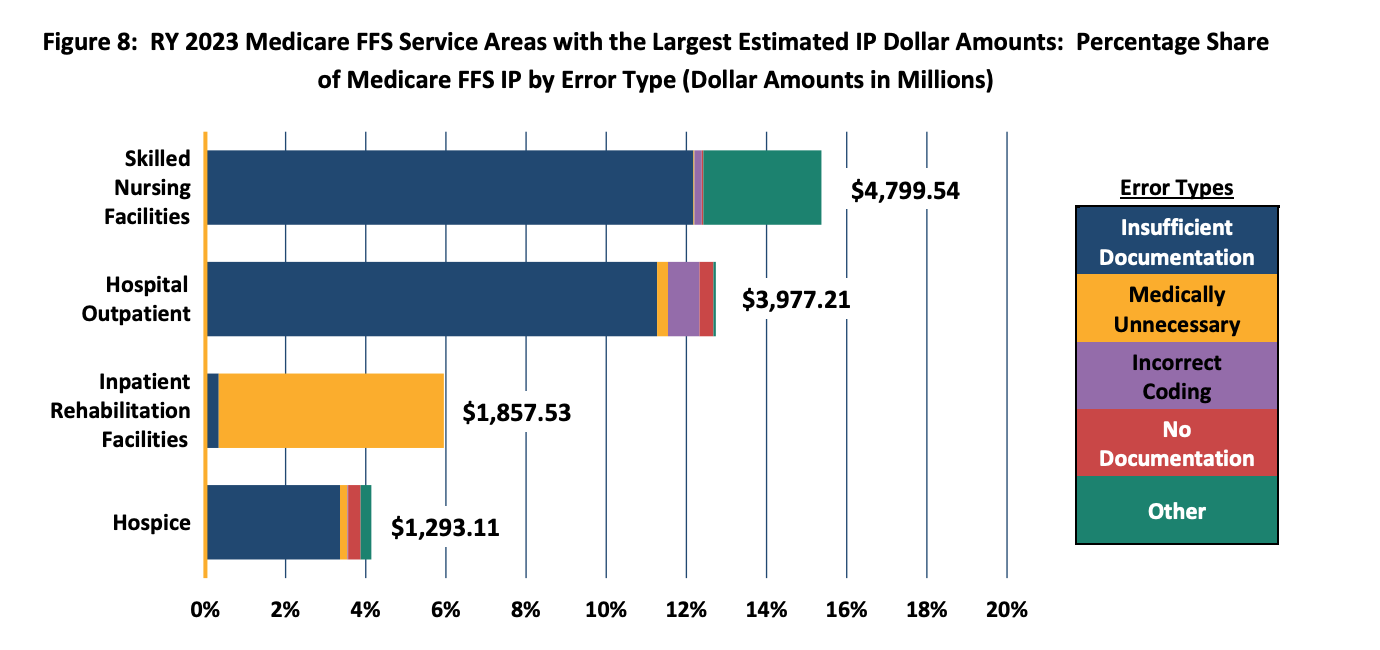The Centers for Medicare & Medicaid Services (CMS) released its improper payment report last week. It was another win for the home health industry, which has become less of a culprit in the reports over the years.
Overall, the Medicare fee-for-service (FFS) estimated improper payment was 7.38%, or $31.2 million. That was the seventh consecutive year it has been below the 10% threshold established by improper payment statutory requirements, according to the agency.
In 2022, the improper payment rate was 7.46%.
“While CMS’ improper payments reporting programs are designed to protect the integrity of CMS programs, not all improper payments are fraud or abuse. It is important to understand that improper payments are payments that do not meet CMS program requirements,” CMS wrote in a corresponding fact sheet on improper payments. “They can be overpayments or, underpayments, or payments where insufficient information was provided to determine whether a payment was proper.
From 2016 to 2020, home health improper payments decreased by $5.9 billion. Then, in 2020, the industry had a 9.3% improper payment rate. In 2021, it had a 10.24% estimated improper payment rate.
In the latest report, home health was not included as one of the sectors contributing most to overall improper payments.
Those sectors were skilled nursing facilities, outpatient hospitals, inpatient rehabilitation facilities and hospice.
Review Choice Demonstration (RCD) could be helping the home health industry improve on payments, at least in Illinois, Ohio, North Carolina, Florida and Texas.
CMS did mention RCD’s expansion within the report.
“HHS announced expansion to the Review Choice Demonstration for Home Health Services to Oklahoma, starting December 1, 2023,” the agency wrote. “This demonstration is also ongoing in Illinois, Ohio, North Carolina, Florida, and Texas. It offers Jurisdiction M providers three initial options: pre-claim review, post-payment review, or minimal post-payment review with a 25% payment reduction for all home health services. A provider’s compliance with Medicare billing, coding, and coverage requirements determines their subsequent steps in the demonstration.”
